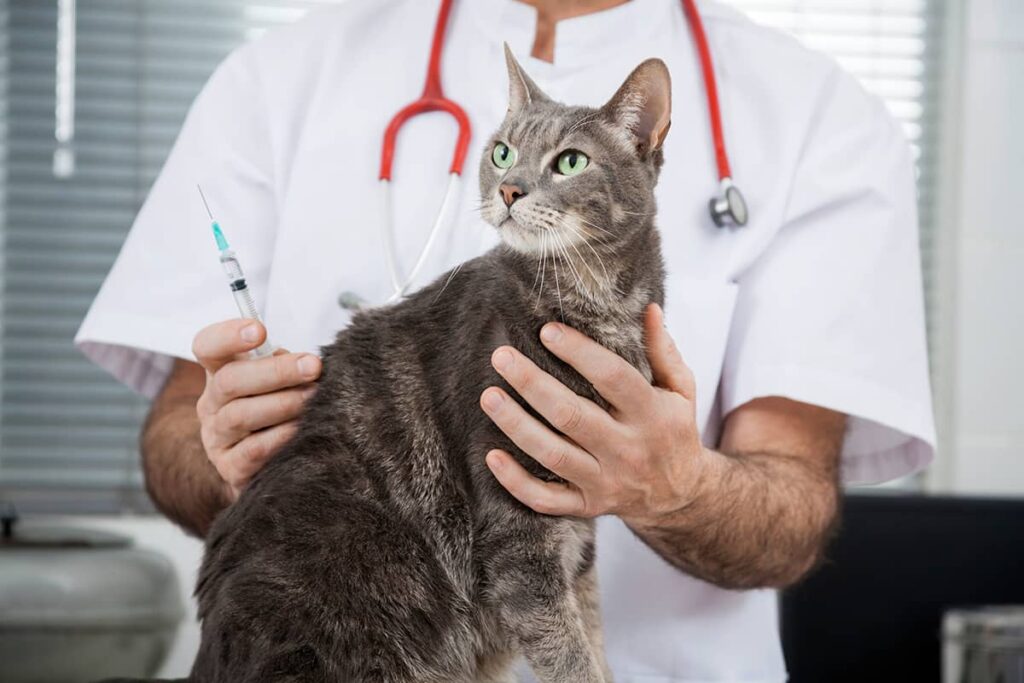
Lifelong disease protection is worth a shot
Pets are very social animals, but unfortunately, along with sharing woofs and meows, they can also share diseases. If your fur babies love going to the park or exploring the neighbourhood, they could be in danger of contracting something.
That’s why MustCare offers complete vaccination programs, starting when they are just an adorable puppy or kitten. Get them vaccinated so they can enjoy their lives without the risk of disease, and so you can have peace of mind that they are safe.
The benefits of pet vaccinations
- Protect your fur baby from life threatening diseases
- Ensure your precious pet has the healthiest life possible
- Don’t be afraid to take your dog to the park
- Don’t be afraid to let your cat roam
FAQs
At a minimum, dogs should be vaccinated for:
- Canine distemper
- Hepatitis
- Parvovirus (often referred to as parvo)
- Canine cough
At a minimum, cats should be vaccinated for:
- Feline herpesvirus
- Calicivirus
- Panleucopenia
- Feline immunodeficiency virus (if they will be outdoors)
The ideal time for vaccination changes depending on the vaccination itself, and whether your cat will be outdoors or not. Generally speaking, kittens need to be vaccinated at the following intervals:
- 6-8 weeks
- 10-12 weeks
- 14-16 weeks
- Boosters once every 12 months
The ideal time for vaccination changes depending on the vaccination itself. Generally speaking, puppies need to be vaccinated at the following intervals:
- 6-8 weeks
- 10-12 weeks
- 14-16 weeks
- Boosters every 12 months
- For some, boosters every 3 years
Congratulations on a new addition to your furry family!
At MustCare, we want to make sure every cuddly cat or precious pooch gets vaccinated to protect them from harmful diseases! So get in touch and book a vaccination appointment today.